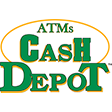 This article is brought to you by Cash Depot.
This article is brought to you by Cash Depot.
Cash management is one of the most important tasks of a retail operation. But it’s also time-consuming, subject to human error, and in many cases, can be costly.
Retailers might assume that a smart safe will solve all of their cash management headaches, said Sean Burke, CEO of Cash Depot. “But many of our partners have told us they still have faults.”
“Smart safes are not a silver bullet for streamlining cash management. Yes, they have benefits and can improve a retailer’s system by making it safer, but employees still have to prepare and monitor the daily register cash and arrange for the armored courier to make pickups. Plus, smart safes have fees that don’t always outweigh the cost of their benefits,” he said.
Smart safes make three big promises: They will reduce costs, save time and eliminate cash buildup in the store.
“While these are legitimate benefits, they aren’t the full picture. For starters, smart safes have hidden costs, mainly bank fees and provisional credit fees,” said Burke. Most banks charge for cash deposits, even if you have your money processed through armored courier, he explained, or charge daily interest (provisional credit) for your money to be deposited in your bank while the cash is sitting in the smart safe waiting to be picked up. “Any way the bank can make money, they will.”
He also noted that smart safes do save time—but only on half of the retail cash management process. “Smart safes only take money in. Management still has to arrange for regular register cash and change. You save time on handling your deposits and bank trips, but not on the rest of the process,” he said.
According to Burke, single-note acceptors (the most common and least expensive smart safe design) take about 7-10 seconds per bill to deposit—for 300 bills, that’s still 35 minutes. Multi-note acceptors are faster, taking about 8 minutes to process 300 bills at 1.5 seconds per note.
According to research from Cash Depot, smart safes save an average of 554 minutes per week or 36 hours per month, which comes out to around $277 a week in labor if calculating based on employees earning $20 per hour plus benefits.
And while smart safes do increase security and protect the cash on hand in the store, they also cost more money to do so, Burke said. Provisional credit fees are just one of the contributors. Those fees build up by the day—one week of provisional credit on $5,000 worth of cash can add up to $54.66 per week.
“And if the armored courier is late? Then every day they miss a pick up means more cash in your back office, making you a target for theft, and more money out of your pocket in provisional credit,” he said.
BANK IN A BOX solves all three of these problems, said Burke, starting with handling the complete cash journey, including start-of-shift, register top-ups, deposits, and reporting. “It has true labor savings—it can bulk process 300 notes in 60 seconds or less, digitally deposits money the next business day as a true deposit instead of giving you ‘credit,’ and retailers don’t need to worry about cash build-up as cash is steadily funneled back out of your store thanks to the ATM and financial kiosk.”
This is part one of a two-part series from Cash Depot. Look out for part two on Thursday.